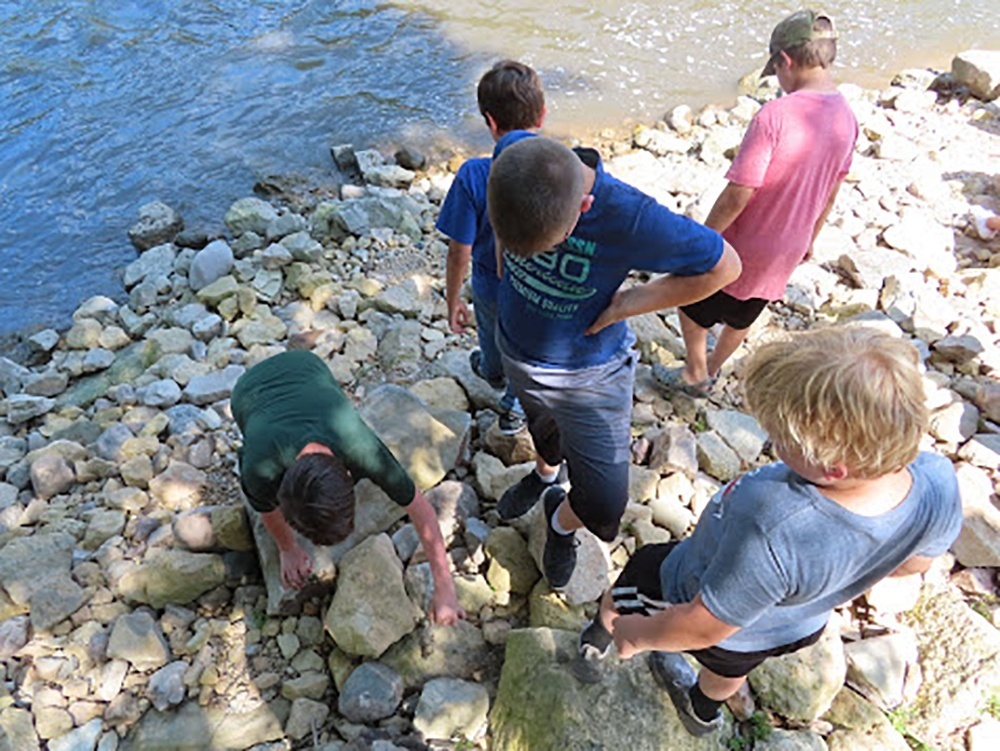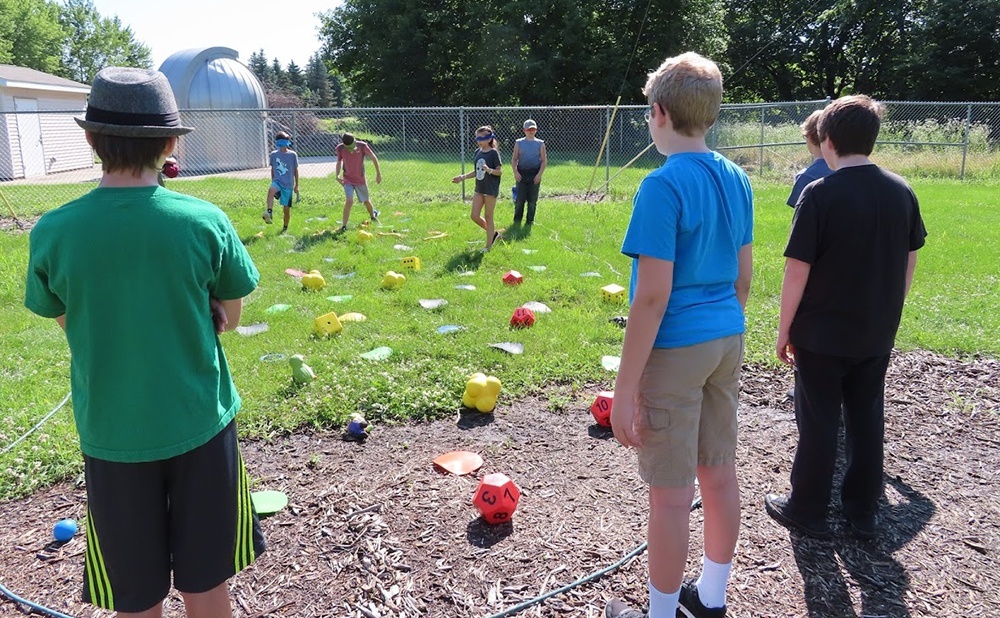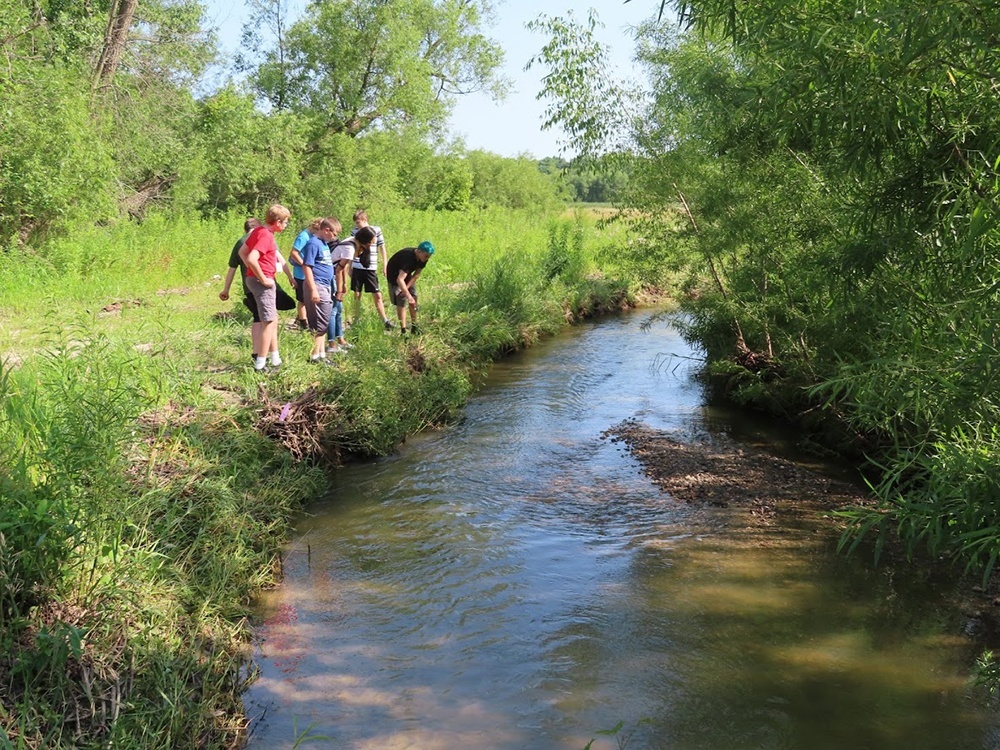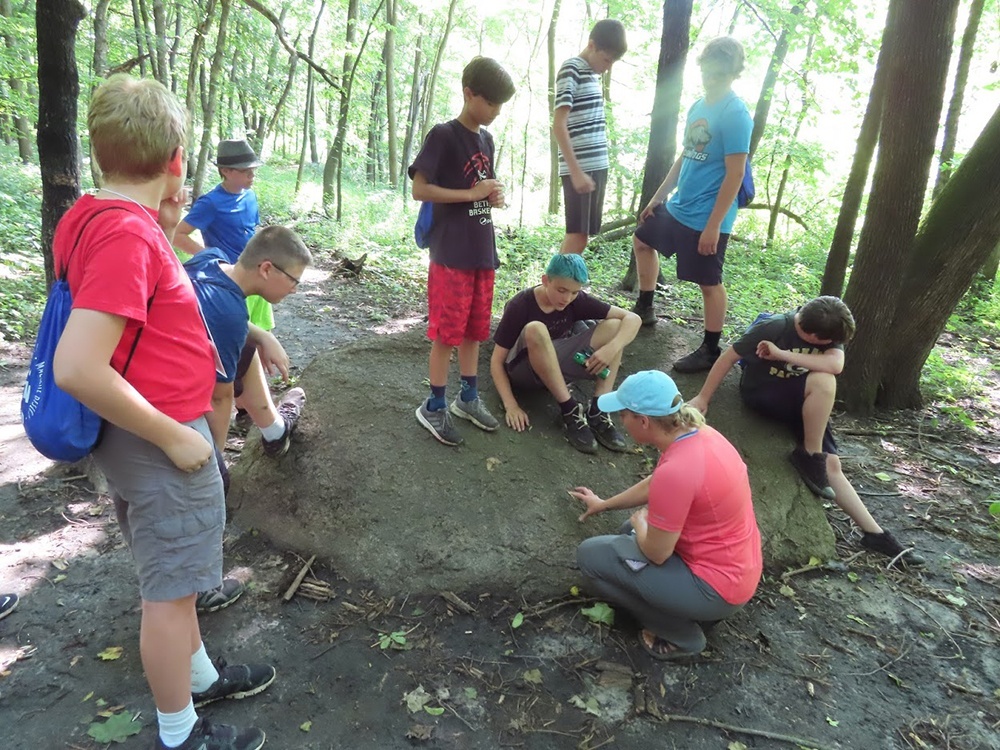Minnesota State University, Mankato graduate student Jonathan Trzepkowski is a bit of an adrenaline junkie. From skydiving to kayaking, mountain biking to skiing, he enjoys all things outdoors, which helps explain why he is studying experiential education in Mankato.
Now, Trzepkowski has cooked up the perfect combo for his two interests: a no-holds-barred, edge-of-your-seat camp for elementary students wanting to both have adventures and learn the science behind those adventures at the same time.
MSU calls it their “Explore Adventure STEM” summer camp, and it’s scheduled to be a week full of adrenaline-fueled activities and top-notch lessons from the university’s expert professors.
“[The university] was interested because adventure sports and this extreme stuff is becoming more popular… and I saw the opportunity to take what I had as a vision of this adventure education thing,” Trzepkowski said. “It was the perfect marriage.”
An Extreme Background
As a child of two Army service members, Trzepkowski bounced around quite a bit during his childhood. “I went to seven schools before I graduated,” he said with a laugh. Once he graduated high school in 2007, he continued that nomadic existence, moving to a new location every four-and-a-half months or so. He earned a degree in expeditionary studies from SUNY Plattsburgh in New York and worked seasonally as a paddle sport and ski instructor, traveling everywhere from Canada to California to lead camps and teach at colleges.
I had a vision of this adventure education thing, and they needed a camp, so it just came as a marriage of me wanting to do something and having a place to do itJonathan Trzepkowski
Eventually, Trzepkowski came to Mankato to pursue his master’s degree in experiential education, saying he wanted to better explore the educational side of outdoor activities.
“Especially with being a ski instructor and a kayak instructor, that has a stereotype of just being a guide and a hooligan,” he said. “But I was more into the instructional education side of that. What interested me about this… is its program is attended by both K-12 and adventure sport educators, whereas other programs tend to be very focused on classroom education versus field education. This was a program that seemed to be happening in both worlds. My thesis is on integrating K-12 curriculum into adventure sport education, so your class could be a semester of kayaking or canoeing down the Mississippi river and learning about all the different processes and cultures involved.”

Trzepkowski started his graduate studies in 2018 and, as part of his program, was involved in last summer’s Science, Technology, Engineering and Mathematics (STEM) camps that MSU offers every year. Traditionally, four camps are offered, looking into different areas such as “Explore STEM+Agriculture” and “Explore Engineering.” Trzepkowski acted as the camps’ director last year and has the same role this year.
“In the past, I’ve run some camps for skiing and kayaking, so this was a perfect opportunity I saw to explore a camp with an educational focus,” he said. “The education of skiing versus the education of science is different, so I am really happy to have this opportunity.”
Something New
This year, Trzepkowski had the opportunity to dive even deeper into his two interests—education and adventure sports—when MSU announced it needed a new camp to fill its fourth summer slot. Trzepkowski explained that the university switches up camps at times, so it wasn’t unheard of to need a new offering—and it gave him exactly the chance he was looking for.
“I had a vision of this adventure education thing, and they needed a camp, so it just came as a marriage of me wanting to do something and having a place to do it,” he said.

Trzepkowski explained that the idea of an adventure camp for elementary students had bounced around in his head for a while because of his time teaching kayaking and other sports. He pointed to rock climbing as a hobby that takes a surprising amount of scientific education, from recognizing which rock formations are stable enough to climb to understanding how weather can affect a day’s activity. There is also the cultural element—being respectful of the area where you’re climbing and its inhabitants—as well as having a good grasp of the place’s history.
“I thought, ‘Couldn’t this all be school?’” Trzepkowski said.
So, he set out to create a well-rounded camp schedule that would allow campers to have fun, hands-on activities while simultaneously learning about the principles behind them. For the four days scheduled for this summer’s camp, students will explore MSU’s high/low ropes course, tackle the university climbing wall and go on a hike through the woods. They will also work with experts from local nonprofit Key City Bike to learn about the mechanics of bicycling—even taking apart a bike and putting it back together.
The general focus of the camps is to have a hands-on, fun experience exploring STEM different careers in many different fieldsJonathan Trzepkowski
Trzepkowski estimated that campers will spend about 60 percent of the time outdoors and 40 percent of the time learning inside, assuming the weather cooperates. But even if inclement weather forces them inside, there will still be hands-on opportunities.
“We have alternates for every activity,” he said. “Ideally, we’d like a 60-40 outside/inside ratio, but it’ll be 100 percent hands-on. When we are inside, we’re looking at the construction of and disassembling a bike… These are very hands-on activities that we’re doing.”
Along the way, MSU professors will share lessons about everything from how climbing harnesses are manufactured to how human sport activity impacts the surrounding environment.

“We’re tying this all together by exploring human elements involved in [these activities],” Trzepkowski said. “We outreach to faculty and departments within MSU, and then they have a professor come and deliver content. So, the level of instruction these students are receiving is pretty high. These aren’t just some volunteers coming in and talking about an experiment; these are actual professors doing research who are coming and addressing the students.”
Finally, one day of the camp will be dedicated to visiting one or more local businesses that are somehow involved in the “adventure” industry, such as sports equipment stores or outdoor tour guide companies. Trzepkowski is still lining up his industry partners, but he said he’s sure they’re going to be great opportunities for campers to see real-world applications of what they’ve learned during the week.
“The general focus of the camps is to have a hands-on, fun experience exploring STEM different careers in many different fields,” he said. “We take [campers] out into the community to meet the people in these careers… Sometimes, careers can be this burden of, ‘What are you going to be?’ Here you get to be something different every day, have fun, explore different career options, and see what’s out there and what you enjoy so that it doesn’t have to be this burdensome thing.”
Sparking an Interest
While Trzepkowski acknowledged that four days isn’t a particularly long time to run a camp, he’s still confident that campers can gain quite a bit from their summer experience.
“We can’t cram too many adventures into four days, but what we can do is show them there is knowledge to be had in adventures and use this as a catalyst for future thought and expansion into this,” he said. “We’re trying to get the best combination of outside adventure activity with also taking time to reflect on how it relates back to our brain and our body.”
According to Trzepkowski, registration is already open for all four camps, and they tend to fill up quickly, so he encourages parents to start looking into them if their students are interested.

“As much as I’d love to see some of the old faces come back, I’m really looking forward to seeing new faces too,” he said, adding that his biggest goal is that the campers will have fun learning something new. “The bottom line with all these camps is it’s about having fun. You learn a lot in school all year, and we get that. We’re here to have fun and help you recognize that what you do for fun can also be learning.”
Explore Adventure STEM runs from June 22-25, 2020. For more information, visit http://engineering.mnsu.edu/camps/explore-adventure-stem/.
What MSU Says
“Explore Adventure STEM is perfect for young scientists and engineers where a classroom isn’t enough to fully express themselves. With activities such as climbing, hiking, biking, and an adventure ropes course this camp will help students realize the adventure that STEM can take you on. The adventure continues in the classroom as students apply the knowledge they gained in the field to problems being encountered in the real world. Whether the students are already hardy explorers or looking to try something new there is something for everyone’s adventure and learning. Outdoor activities are weather dependent.”
More Information About Camp
- Age range: any youth entering 6th – 9th grade
- When: June 22-25 (drop-off: 8:00-8:30 a.m.; pick-up: 4:00-4:30 p.m.)
- Where: MSU-Mankato
- Cost: $325 ($300 with multi-camp discount), which includes program fee, t-shirt, string backpack, all materials, snacks and lunches. Scholarships are also available.
- Deadline to register: June 8 (but parents are recommended to register early because camp tends to fill up)
- For more information: http://engineering.mnsu.edu/camps/explore-adventure-stem/



